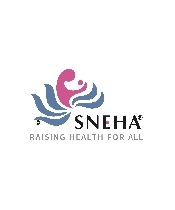
|

|
|
8291213774 www.snehamumbai.org donate@snehamumbai.org |
| Project Name | Social Protection - Collaboration & Partnerships | ||||||||||||
| Amount Utilized (INR) | 1066533 | ||||||||||||
| Project Description | Society for Nutrition Education and Health Action (SNEHA), a secular Mumbai-based NGO works towards improving the health, nutrition and safety of women, adolescents and children living in vulnerable urban informal settlements. With a continuum of care approach, the organization intervenes at critical life junctures such as adolescence, pregnancy, childbirth, postpartum, and early childhood, seeking to break the intergenerational cycle of poverty and ill health. The Collaboration and Partnerships domain at SNEHA partners with government systems and Civil Society Organizations (CSOs) to address the social determinants of health and ensure adequate coverage of social protection for our target populations. As a social protection helpdesk, we strive to enable marginalized families to access social protection schemes while engaging with government systems implementing the schemes to improve service delivery. With the understanding that the social protection coverage provided by government schemes needs to be bolstered through partnerships with CSOs, we try to assess the partnership needs of various SNEHA programmes, map CSOs offering relevant services and strengthen referral processes related to social determinants of health. | ||||||||||||
| Locations | Mumbai City > Maharashtra (MH),Thane > Maharashtra (MH),Mumbai suburban > Maharashtra (MH) | ||||||||||||
| Causes | Health > Preventive healthcare,Health > Supporting public health centre,Health > Mental health,Health > Sanitation & hygiene,Health > Nutrition,Health > Maternal & child health,Health > Awareness & advocacy | ||||||||||||
| Beneficiary Group | Children,Women,Elderly,Persons with Disabilities,Others | ||||||||||||
| Beneficiary Description | SNEHA's Collaboration and Partnerships team is a support function that works collaboratively with other SNEHA programs to uplift and empower individuals across the lifespan. We have followed the life cycle approach for social protection suggested by UNICEF to ensure that a continuum of social protection coverage is available to the people of various age groups: . Schemes providing direct cash transfer benefits for maternal and child health like Pradhan Mantri Matri Vandana Yojana (PMMVY) and Janani Suraksha Yojana (JSY) for pregnant and lactating women Programme such as Janani va shishu surakhsa Karyakram for neonatal health; Rashtriya Bal swasthya Karyakram for children from birth to 18 years of age and the Rashtriya Kishor Swasthya Karyakram which comprehensively addresses health needs of adolescents The universal health coverage schemes like the Ayushman Bharat and the Mahatma Jyotiba Phule Jan Arogya Yojana (MJPJAY) along with Pradhanmantri Janaushadhi Yojana for access to generic medicines are the schemes that cater to all age groups of the vulnerable populations we work with All schemes of the Public Distribution System (PDS) to ensure food security for all families in the target geographies of SNEHA We have specifically focussed on the most vulnerable groups in the community by promoting Government sponsored investment schemes such as Sukanya Samriddhi Yojana and Lek ladki Yojana for financial security, education and empowerment of girl children; Balsangopan scheme for the orphan and the children in need of care and protection; Manodhairya scheme for child and women survivors of violence and the Sanjay Gandhi Niradhar Yojana for the aged, disabled, and destitute men, women and children in the community. Our cumulative coverage, as per 2022-23 figures has been o Direct beneficiaries (Those who participate directly in the programme and thus benefit from it) 139,946 o Indirect beneficiaries (Those who, in spite of having no direct contact with the programme, are affected by it via direct participants): -882,530 | ||||||||||||
| Impact | SNEHA's intervention has significantly impacted the lives of several families in Mumbai's slums by facilitating access to government social protection schemes. Number of capacity building sessions conducted with SNEHA team members (across programmes): 119 Number of community volunteers* trained on social protection scheme: 704 Number of community members reached for awareness generation on social protection schemes: 51,876 No. of people provided with documentation support: 20,034 Total number of people referred for various schemes: 30,864 Total no. of community members who availed benefits from different social protection schemes:11,250 | ||||||||||||
Activities Conducted
| |||||||||||||
| Project Name | Health Systems response to gender based violence Project | |||||||||
| Amount Utilized (INR) | 912500 | |||||||||
| Project Description | SNEHA’s program on Prevention of Violence against Women and Children in informal settlements in Mumbai aims to develop and sustain high‐impact strategies for primary prevention, ensure survivors’ access to protection and justice, empower women to claim their rights, mobilize communities around ‘non tolerance for violence,’ and respond to the needs and rights of excluded and neglected groups. Through convergence, it works with government and public systems to reinforce their roles in ensuring basic social, civil and economic security for women in informal settlements. Access for women and children to the public health systems that support holistic quality redressal of violence is imperative to build a sustained and institutional response. The health-systems based approach focuses on strengthening the public health sector’s response towards violence which is complex and multi-faceted. The project focuses on three levels of prevention. Primary prevention involves training healthcare providers to identify and respond to cases of violence. Secondary prevention offers crisis counseling and legal services to survivors. Tertiary prevention enhances collaboration among various departments and external organizations to institutionalize a comprehensive response to violence. This model ensures a coordinated approach, providing immediate and ongoing support for survivors and integrating resources within and beyond the healthcare system. | |||||||||
| Locations | Mumbai suburban > Maharashtra (MH),Mumbai City > Maharashtra (MH) | |||||||||
| Causes | Public Safety > Protection from Exploitation & abuse,Public Safety > Awareness & advocacy | |||||||||
| Beneficiary Group | Children,Women | |||||||||
| Beneficiary Description | 1. Direct beneficiaries- 3162 (Counseling clients-1612; Health care providers- 1550) 2. Indirect beneficiaries -3224 (Family members of counseling clients) | |||||||||
| Impact | ➢1550 healthcare providers participated in training sessions provided by our counselors. This increased sensitivity among them on the issue of gender based violence and helped in timely case referrals. ➢ Overall Increased referral of the survivors of the violence (91%) by the public health care providers to Women's OPDs. This highlights the credibility of SNEHA’s work to partner with the public health systems. ➢ Our outreach to women and children increased by leaps and bounds through hospital Women’s OPDs. 1612 women and children accessed counseling service in 3 hospital Women’s OPDs, OSC and SPGRC. ➢ Increased number of survivors received first response by the trained nurses (37%) ➢ Increased number of women screened for mental health assessment (94%) ➢ 66% registered survivors manifested improvement in mental health conditions. This has been possible only through the provision of constant need-based support and rigorous follow-ups by our staff, psychosocial support, therapeutic intervention and treatment. ➢ Increased legal procedure in the filed cases, (28%) survivors received legal intervention from our in-house legal coordinator, paralegal staff and lawyers. ➢ Protocolised intervention, counseling of survivors along with partners and family members has resulted in 45% reduction in violence in registered cases, as reported by the survivors. | |||||||||
Activities Conducted
| ||||||||||
| Project Name | Maternal and Child Health & Collaborations and Patnerships | |||||||||||||||||||||
| Amount Utilized (INR) | 813000 | |||||||||||||||||||||
| Project Description | 1] Malnutrition Management Center (MMC) is a part of Maternal and Child Health (MCH) program, is working in the rural area of Kasara in collaboration with ICDS's VCDCs. SNEHA's goal is to strengthen and support Severe Acute Malnutrition (SAM) and Moderate Acute Malnutrition (MAM) management processes at VCDCs in Kasara, Shahapur, Thane. To achieve this goal we build the capacity of ICDS staff and provide on field mentoring support in the management of SAM and MAM children by conducting training on nutrition, VCDC protocol, guidelines, and roles and responsibilities and also conduct home visits, joint anthropometry camps and parent meetings. 2] Collaboration and Partnership assists marginalised citizens with required documentation and supports public authorities to strengthen the delivery mechanism of relevant schemes. Remaining funds are allocated to this program and will be utilized towards this program from October 2023 to January 2024. | |||||||||||||||||||||
| Locations | Thane > Maharashtra (MH) | |||||||||||||||||||||
| Causes | Health > Maternal & child health | |||||||||||||||||||||
| Beneficiary Group | Children,Women | |||||||||||||||||||||
| Beneficiary Description | SAM/MAM children between 0 to 6 years. | |||||||||||||||||||||
| Impact | Following impact is created till date: 1) SAM MAM Screening, and Confirmation by sub-center Medical Officer - In this period we reached out to 192 sub centers along with 122 Public Health Center Doctors for screening of 525 SAM children 2) SAM children admission at CTC - In this period our main focus was on the referral of SAM children to VCDC. With the coordination and support of CTC staff, the PHC team, and the ICDS team, we referred 20 SAM children to CTC, 19 children were admitted for 14 days and I SAM child received OPD services. 3) Immunization of SAM MAM children - In this period we paid attention to the immunization status of SAM MAM children. 6 SAM children received the vaccination in field camps. 4) Parents Meetings - 29 parents meeting with 191 mothers and 21 community volunteers from Kasara 1 and Kasara 2 areas on “Common Illnesses and Importance of Early Interventionâ€, and “ Amylase Rich Food, the Importance of regular feeding EDNF and Malnutrition.†| |||||||||||||||||||||
Activities Conducted
| ||||||||||||||||||||||
